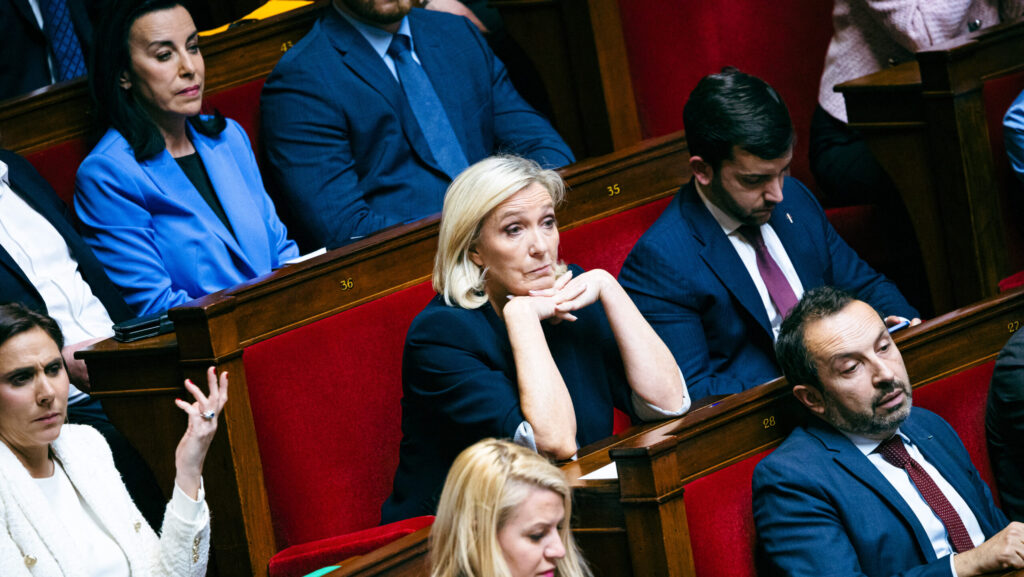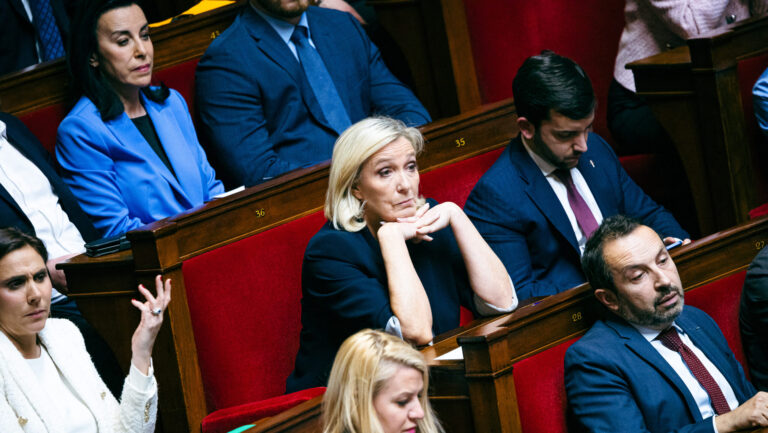In an article published on 14 October, POLITICO alleges that Hungarian Prime Minister Orbán has ‘threatened’ to ‘mess’ with the aid to Ukraine, and he has done that in order to ‘help Trump’. This is an interesting but not surprising take on Viktor Orbán’s position and his motivations. What we are seeing is that the Democratic administration in Washington, along with their Brussels allies, are hellbent on prolonging the war in Ukraine. They are proposing loans in the tens of billions of dollars to help Kyiv fight the war until the last Ukrainian, and hope that this stance will also win them the election and thus they may get rid of Trump and Orbán once and for all.
Why the Panic?
The situation at hand is nothing more than a well-crafted political narrative—a case of the ‘fake news media’ that Trump himself has warned about. The Democrats in Washington have enough common sense left to recognize that come 5 November, the American people may very well vote them out of power. Yet, lacking the democratic spirit and bipartisan respect needed in such a tight race, they refuse to shelve their divisive agendas, even though these very policies are bringing them to the brink of defeat.
At the end of October, a mere five days before the election that holds little hope for Democrats, they wish to approve a $50 billion loan for Ukraine, in collaboration with the EU and the G7. To ensure the loan’s stability and longevity, they have instructed their Brussels bureaucrats to extend the EU sanctions on Russia not for the usual six months, but for a staggering 36 months—three years!
This means that five days before an election, the so ‘democratic’ Democratic Party wants to commit $50 billion towards a war that they would prolong for at least three more years. The so-called ‘peaceful transfer of power’ would be anything but. The next president, should it be Trump, would find his hands tied. Despite Trump’s desire for peace, the Biden-Harris administration would legally bind him to pay billions to Ukraine over the next three years—thus keeping inflation high, the West in crisis, and ensuring further suffering and loss of life for hundreds of thousands.
You may wonder how many European leaders out of the 27 have raised concerns about this. Or, to put the question in a different way, how many European leaders are not servile pawns of the Democratic deep state. The answer is: one. Viktor Orbán.
The ‘Threat’ Posed by the Hungarian Prime Minister
Because once more, Orbán remains the thorn in the side of George Soros, the pro-war left, the Democrats, and the EU bureaucrats. In a Europe now ideologically colonized, Orbán still stands for Europe, sovereignty, and reality. Just as the founding fathers of the European Union did, which is why in the case of crucial decisions—like extending sanctions against a nation from six months to three years—unanimity is required. All 27 member states must agree.
And despite attempts to undermine him from Washington, despite pressures in 26 other member states, they haven’t been able to topple Viktor Orbán after 14 years. As one EU bureaucrat quoted in POLITICO confessed: ‘We are putting pressure, but so far Orbán is not caving.’
How democratic these bureaucrats must be! Financial, political, and administrative pressure is being exerted on a freely elected, sovereign leader for exercising a democratic decision. But there is no need to further explain the process; we are already all too familiar with the left’s tactics on both sides of the Atlantic.
Orbán, however, is disinclined to vote on cementing anti-Russia sanctions for three years or sending more billions of dollars to Kyiv until after the US election. The race for the White House is incredibly tight, and the candidates stand starkly opposed on this critical issue. Forcing through the will of one side just days before an election and locking them down for three-quarters of their rival’s term would violate every democratic norm, principle, and value.
It’s All About Framing
Beside the tools of pressure mentioned, media coverage like this POLITICO article is also part of the arsenal. The narrative suggests that the gigantic loan is not about war or peace, but that the EU is being done a great favour. The US and Japan are contributing, and the loan will be drawn from the interest on frozen Russian assets. In any case, they insist, we must fund Ukraine. If America and the G7 back out, the EU would still have to pay, but it would be far costlier for Europeans, they argue. Crafty political manipulation, I must admit.
The problem, however, lies in the fact that the assumptions underlying this argument are false, outdated, or rejected by the European public. For instance, the idea that sanctions are working—clearly, they are not. Tightening them by fixing them for three years would not bring us any closer to peace. Nor does the notion that the EU, with or without the US, must pour tens of billions into Ukraine’s war effort hold water. Why should the EU do that? Because paid Brussels bureaucrats say so? Pardon me, but the surge of peace-focused political forces in recent elections suggests that the European people disagree.
Lastly, this once again proves that the EU is not looking out for Europe’s or its citizens’ best interests. They are nothing more than servants of the US Democratic network. Here lies the opportunity to pull out of the war that is ravaging Europe’s economy, with a new peace-oriented President on the horizon. Yet, Brussels seems more concerned with stoking Washington’s war hunger and securing it for years to come.
Rather than reckless warmongering, the Democratic establishment should strive for peace, and refrain from blackmailing a sovereign country.







